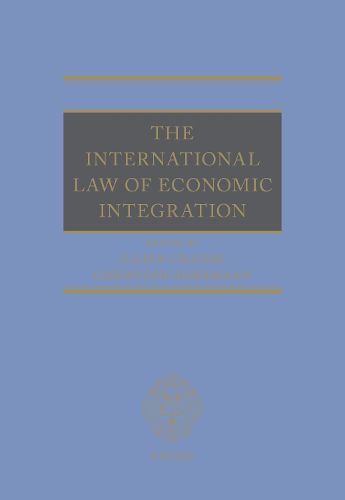Readings Newsletter
Become a Readings Member to make your shopping experience even easier.
Sign in or sign up for free!
You’re not far away from qualifying for FREE standard shipping within Australia
You’ve qualified for FREE standard shipping within Australia
The cart is loading…






The International Law of Economic Integration is a comprehensive reference work which builds a thorough understanding of the processes and consequences of economic integration and explores its essential role in shaping global economic policies and promoting international cooperation. The book traces the historical developments and unpacks the theoretical foundations of economic integration, discussing contributions from notable political theorists and examining the impact of global crises and technological advancements. Through detailed, practical analysis it explains the existing rules and broad interplay of different regimes they work within, describes the range of legal instruments designed to facilitate the free movement of goods, services, capital, and labour across borders, and addresses the barriers posed by territorial nation-states to cross-border economic activities.With contributions from worldwide leading scholars offering insights from the legal, economic, and political dimensions, this work provides a holistic exposition of the field, enabling effective negotiation of future rules and highlighting the path towards a more integrated and prosperous global economy.
$9.00 standard shipping within Australia
FREE standard shipping within Australia for orders over $100.00
Express & International shipping calculated at checkout
The International Law of Economic Integration is a comprehensive reference work which builds a thorough understanding of the processes and consequences of economic integration and explores its essential role in shaping global economic policies and promoting international cooperation. The book traces the historical developments and unpacks the theoretical foundations of economic integration, discussing contributions from notable political theorists and examining the impact of global crises and technological advancements. Through detailed, practical analysis it explains the existing rules and broad interplay of different regimes they work within, describes the range of legal instruments designed to facilitate the free movement of goods, services, capital, and labour across borders, and addresses the barriers posed by territorial nation-states to cross-border economic activities.With contributions from worldwide leading scholars offering insights from the legal, economic, and political dimensions, this work provides a holistic exposition of the field, enabling effective negotiation of future rules and highlighting the path towards a more integrated and prosperous global economy.